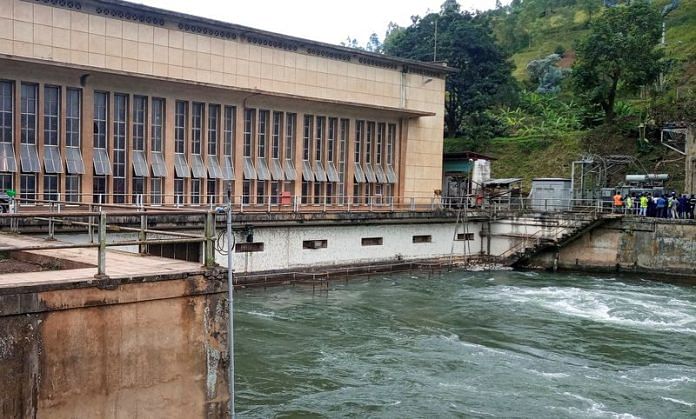
By Crispin Kyala BUKAVU, Democratic Republic of Congo (Reuters) – A tide of plastic waste flowing into a major hydroelectric dam in eastern Congo is causing regular power cuts in several major cities, creating a challenge that local authorities are trying to solve. The Ruzizi dam located at the south end of Lake Kivu, which borders Rwanda, supplies the city of Bukavu and others with electricity and the power outages are hurting local businesses. The problem is linked to the growing use of plastics coupled with a lack of waste collection in the region.
Heavy rainfall causes waste to flow down from the mountainous terrain to the lake, where it collects and blocks the machinery. “This waste effectively blocks the water. Water has difficulty entering the forced conduits to provide the pressure and speed required for the machines,” Ljovy Mulemangabo, provincial director of national power company SNEL, told Reuters.

Each day cleaners attempt to extract the plastic bottles, jerry cans and other debris that causes the dam’s machinery to shut down for hours. Despite their efforts, the plastic accumulates and causes outages. Didier Kabi, the provincial minister of environment and green economy, is among those working to find a solution.
He told Reuters in an interview that requiring households to join a waste collection organisation could help stop plastic from accumulating in the lake. “This will enable us to see to what extent everyone needs to collect their own waste at household level,” he said. Surface-level cleaning isn’t enough as the waste accumulates to a depth of 14 metres, with divers required to clean the river bed to prevent turbine blockages.
Alex Mbilizi, a metalworker in Bukavu, said the lack of power was causing problems. “Our bosses are pressing us because of delays in completing their orders, and we don’t know what to do,” he said. (Reporting by Crispin Kyala; Writing by Cooper Inveen and Anait Miridzhanian.
Editing by Jessica Donati and Kirsten Donovan) Disclaimer: This report is auto generated from the Reuters news service. ThePrint holds no responsibilty for its content. var ytflag = 0;var myListener = function() {document.
removeEventListener('mousemove', myListener, false);lazyloadmyframes();};document.addEventListener('mousemove', myListener, false);window.addEventListener('scroll', function() {if (ytflag == 0) {lazyloadmyframes();ytflag = 1;}});function lazyloadmyframes() {var ytv = document.
getElementsByClassName("klazyiframe");for (var i = 0; i < ytv.length; i++) {ytv[i].src = ytv[i].
getAttribute('data-src');}} Save my name, email, and website in this browser for the next time I comment. Δ document.getElementById( "ak_js_1" ).
setAttribute( "value", ( new Date() ).getTime() );.














